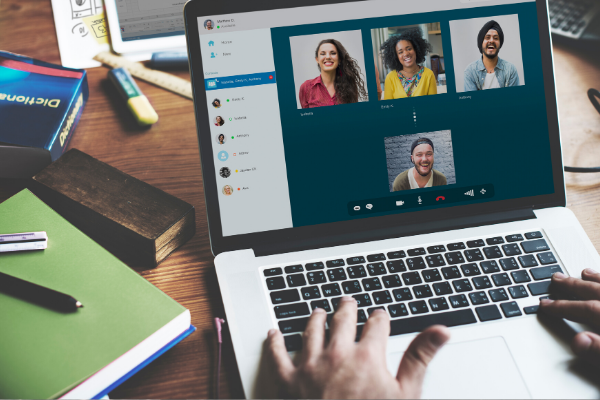The current global coronavirus pandemic has presented serious challenges for people in recovery from addiction. Self-isolation, the threat of unemployment, no access to 12-Step meetings, and deep anxiety about an invisible disease spreading across the country—these are all possible relapse triggers.
While these risks should certainly not be underestimated, they could also be treated as an opportunity to strengthen recovery efforts.
“We are clearly facing a very difficult situation at the moment but just like everything else in life, this too shall pass,” says Michael Arnold, alumni community relations manager at Harmony. “I believe we now have a great opportunity to work on ourselves while also being of service and reaching out to help others.”
Connection is crucial for a sustained recovery and nothing disconnects like a lockdown in a pandemic—or does it? With stay-at-home orders across the US, meetings and counseling sessions for those who struggle with addiction have now largely moved online.
“With the help of modern technology, we have the chance to be more connected than ever before,” says Arnold. “The time COVID-19 is giving us at home is actually the greatest gift that our recovery can receive. If you are concerned about being isolated at home, pick up the phone, tablet, or use your computer to reach out to someone. When we choose to connect with people we are helping our own recovery just as much as we are helping the person on the other end of the link-up.”
These types of resources are incredibly valuable right now, say addiction professionals, mental health counselors, and individuals in recovery from substance use disorders. “The peer support group means so much to me,” says Harmony alumna, Spring B. “It’s essential for recovery especially in this period of time to stay connected. It’s super nice to see all the alumni. This group gives me an invisible link to people that understand and support me.”
If you are unsure how to proceed, Alcoholics Anonymous has provided a web page devoted to online options. Narcotics Anonymous offers similar information on its website.
“I don’t know what I would have done if I had been in this situation when we didn’t have access to virtual meetings,” a New Yorker who participates in Alcoholics Anonymous told CNBC. The 26-year-old woman from Brooklyn was 62 days sober at the time and planning to attend 90 meetings in her first 90 days of sobriety. She said a recent meeting she attended through video conferencing had over 1,000 participants.
“It’s so cool that technology enables us to attend meetings with friends in recovery that do not live anywhere close to us,” says Harmony’s Michael Arnold. “Even while we are physically isolated, we have the opportunity to be of great service to one another. When we come together, we can recover. I invite you to see this present moment of crisis as the best time to work on your recovery. Embrace this pause in life and fully engage in your journey of recovery.”
Harmony Foundation continues to serve clients during the COVID-19 (Coronavirus) outbreak and is taking new precautions to ensure staff and client safety. These include strict hand-washing protocols, heightened and ongoing disinfection of all areas at facilities, as well as updated admission assessments to consider previous travel, potential exposure, and health status. All new admissions will have additional medical screening upon campus arrival.


